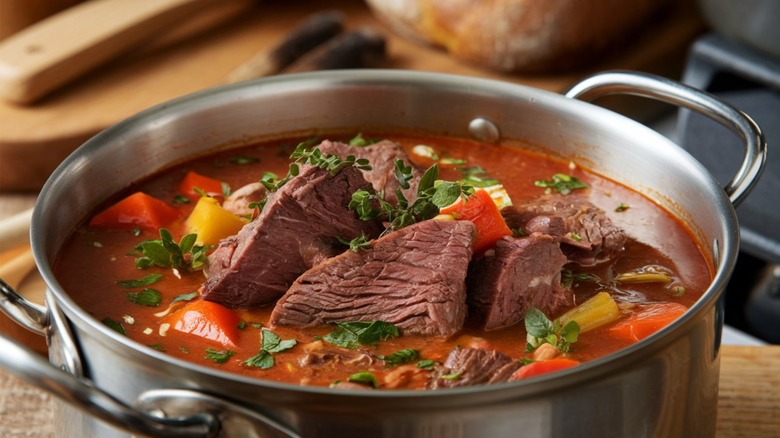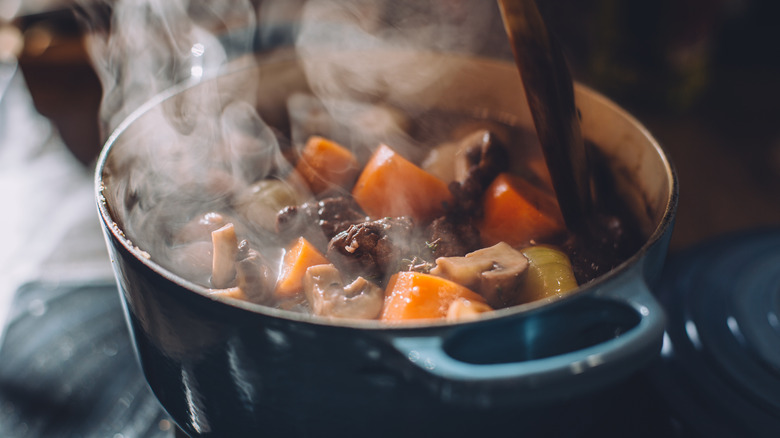Lid On Vs Lid Off: The Key To Perfectly Cooked Stew
There's a famous line in the sitcom "Arrested Development" where actor Carl Weathers gives some unsolicited, money-saving advice to a character about to throw out some rib bones: "Whoa, whoa, whoa. There's still plenty of meat on that bone. Now you take this home, throw it in a pot, add some broth, a potato. Baby, you got a stew going." Of course, while a basic stew is often considered a fairly simple dish to make, you may want a few more instructions than that.
An important aspect of making a stew is, naturally, the stewing process itself. How high of a temperature should you use? How long does it need to cook? And — to our point — do you cook with the lid on or off?
In general, you'll want to cook stew with the lid on. Stew is thicker than its next-of-kin, soup — so while people often simmer soups uncovered in order to aid evaporation (and therefore thickening), this isn't a go-to for stew. Furthermore, keeping the lid on can help the stew cook more evenly, and, because the liquid isn't evaporating out of the pot, the meat stays nice and tender.
When to go uncovered
There are many potential pitfalls to making the perfect stew, including over-thickening the base and having a too-watery consistency. If your stew is looking a bit on the thin side, this would be a good time to take a page from the soup-makers: Remove the lid and let it thicken up via evaporation.
The type of meat you use (beef neck is an underrated recommendation for beef stews) will play a factor in your overall cooking time. But you can expect your stew to stew for at least two hours. Start with the lid on, and check it mid-way. If it's looking too watery for your taste at that point, uncover the pan.
If you do uncap your stew, keep tasting it to ensure a good flavor balance. In addition to moisture, flavor compounds can also be lost through evaporation, so keeping a tight lid on things enhances flavor. This is another reason you never want to cook your soups or stews at a boil, as the high heat also speeds evaporation. A steady simmer is best.

